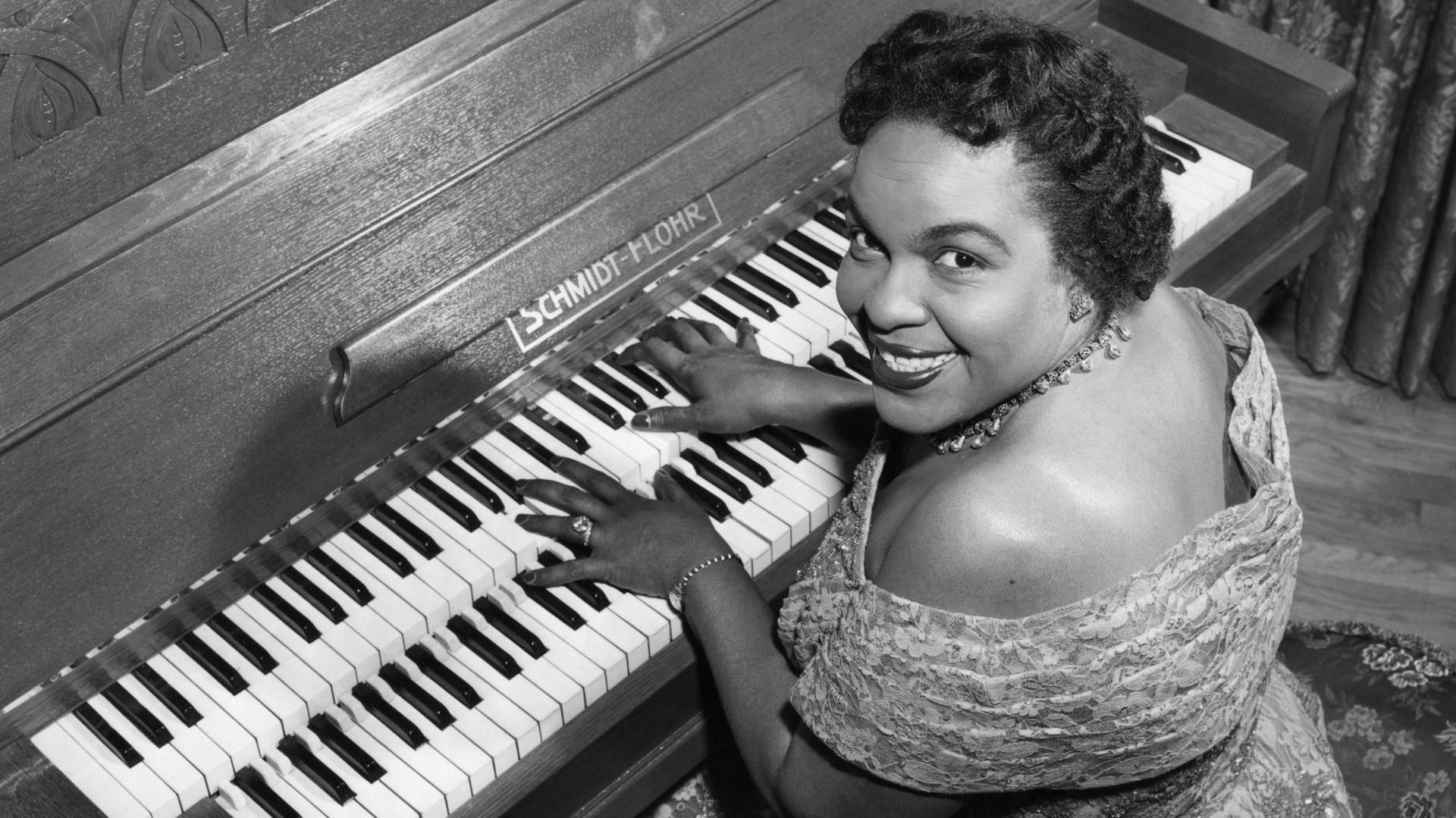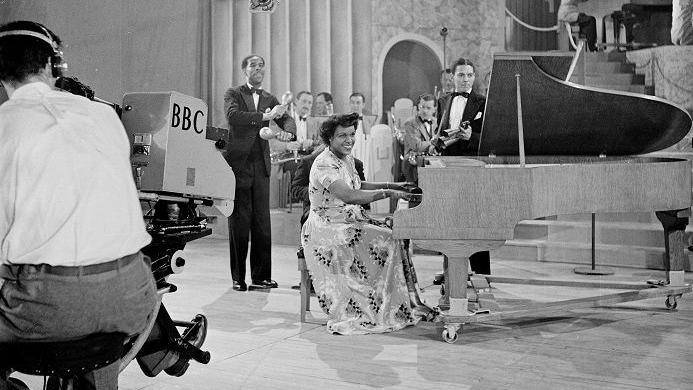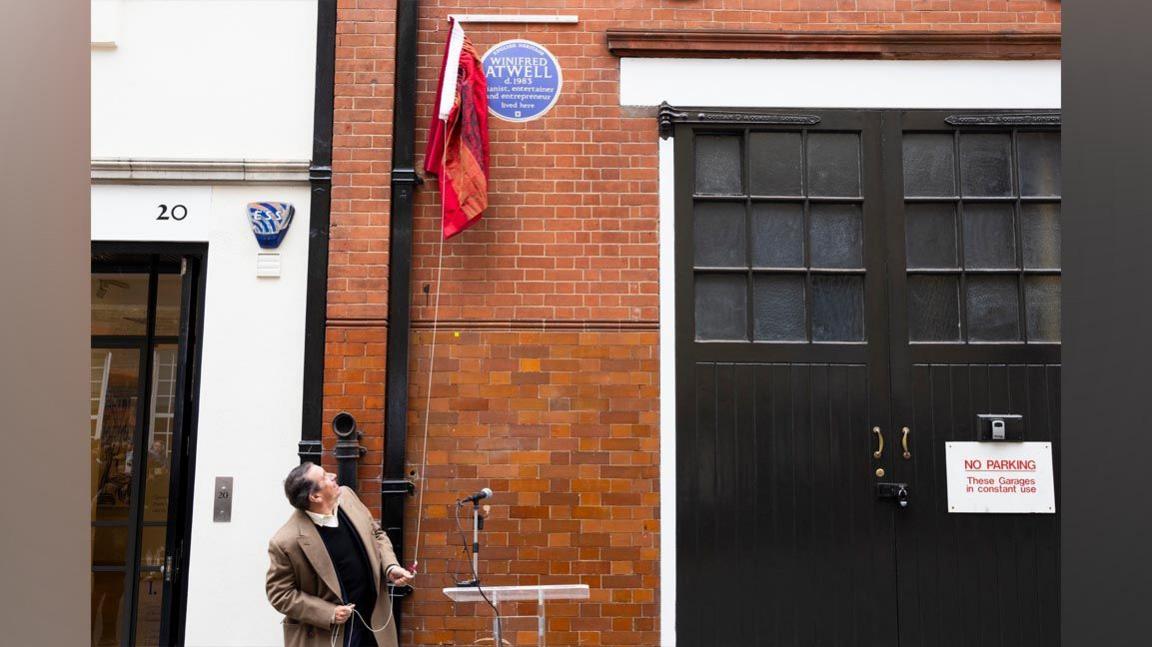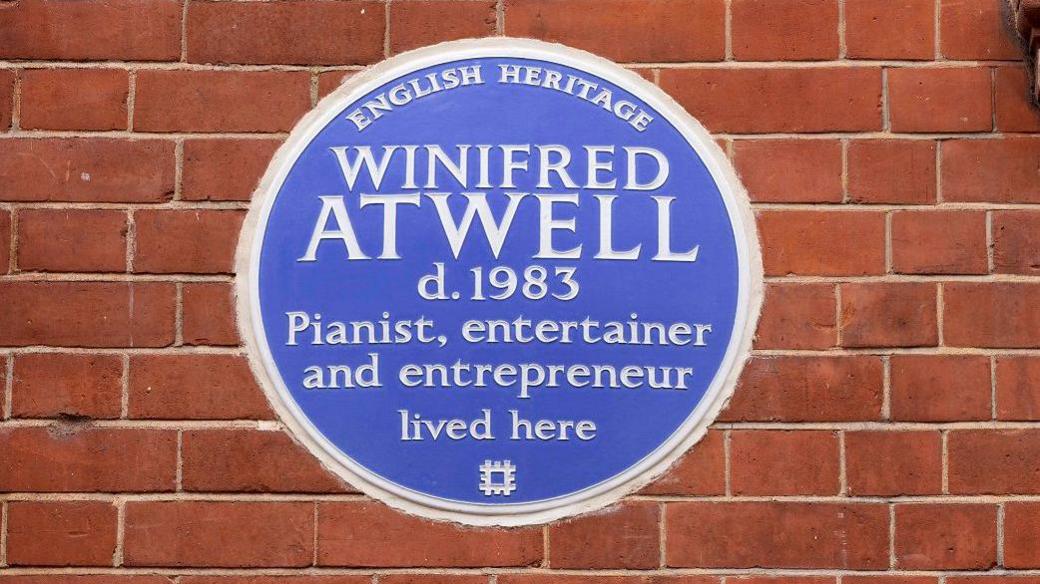Piano legend Winifred Atwell honoured with plaque

Winifred Atwell's Let's Have Another Party became a number one hit in 1954
- Published
A blue plaque honouring pianist Winifred Atwell, the first black artist to have a UK number one hit song, has been unveiled on her former London home.
Atwell, who was born in Trinidad in 1914, moved to the capital in the 1940s and became the only female instrumentalist, to date, to secure a top-selling UK single.
The plaque was unveiled on her former home at 18 Bourdon Street in Mayfair by broadcaster and fellow pianist Jools Holland, who described her as "a piano inspiration to both Sir Elton John, myself, and many others".
English Heritage, which runs the blue plaque scheme, said Atwell was an "internationally renowned pianist, television personality and trailblazing entrepreneur".

Between 1952 and 1960, Atwell spent 117 weeks in the UK charts and fronted her own shows on ITV and BBC television
The blue plaque also marks the home where Atwell kept her two most famous instruments: her Steinway concert grand piano and her "other piano" – a deliberately out-of-tune upright piano that became her signature sound.
Between 1952 and 1960, Atwell spent 117 weeks in the UK charts, appeared on over 100 BBC radio programmes, and fronted her own shows on ITV and BBC television.
Whilst living in London, the music star also used her expertise as a trained chemist to open a hair salon in Brixton which catered specifically for black hair care.
Speaking before the unveiling, Holland, said: "Winifred Atwell is very important in British cultural and musical life.
"She is one of the first women, and certainly one of the first women of Afro Caribbean heritage to become a mainstream figure in 1950s British entertainment."
He added it was "a tremendous personal honour" to be involved in the blue plaque unveiling.

Jools Holland unveiled the blue plaque in Mayfair, at Winifred Atwell's former home
Musician and broadcaster YolanDa Brown described Atwell as "a dazzling performer and a true trailblazer".
"Her entrepreneurial spirit helped her break racial and musical barriers in mid-century Britain."
She added that Atwell had "opened doors for black artists" and called the plaque "a tribute to a woman who deserves far greater recognition in the story of British music".

After leaving Britain, Atwell moved to Australia where she died in 1983
Listen to the best of BBC Radio London on Sounds and follow BBC London on Facebook, external, X, external and Instagram, external. Send your story ideas to hello.bbclondon@bbc.co.uk, external